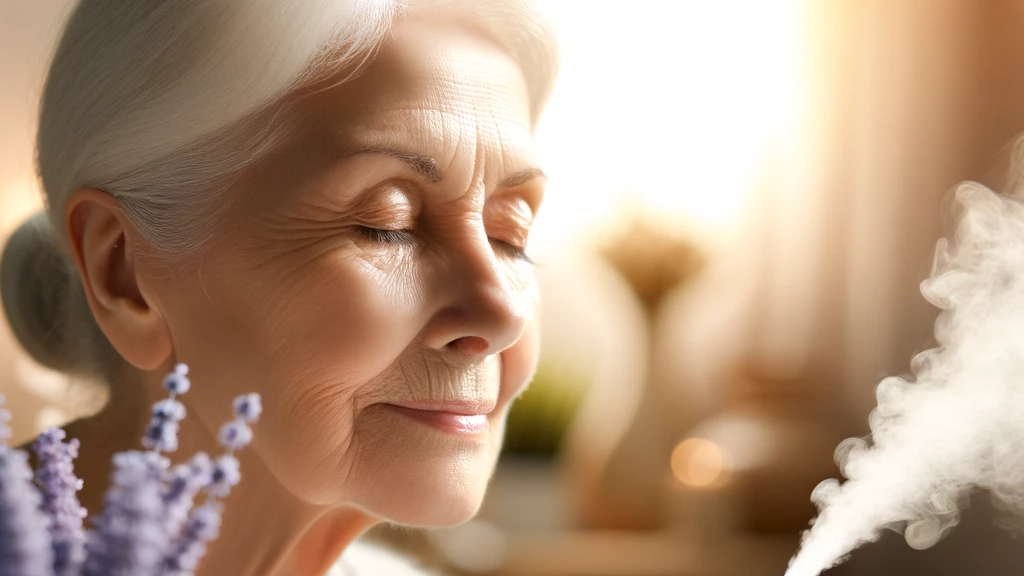Aromatherapy and Dementia: Unlocking the Potential of Essential Oils in Cognitive Care
Discover the potential of aromatherapy in dementia care. Explore how essential oils like lavender and lemon balm can enhance cognitive function, improve memory, and alleviate symptoms in Alzheimer's and other dementia forms. A gentle, effective approach to cognitive health.

In recent years, the intersection of aromatherapy and dementia care has garnered significant attention, shedding light on alternative therapies that could enhance the quality of life for individuals suffering from cognitive impairments. Essential oils, known for their therapeutic properties, are increasingly being explored for their potential benefits in treating symptoms associated with Alzheimer's disease and other forms of dementia.
The Olfactory Connection: A Gateway to Cognitive Function
Aromatherapy hinges on the principle that our olfactory sense – the only sense directly linked to the brain pathway called the limbic system – plays a crucial role in cognitive functions. This connection is particularly relevant in dementia, where cognitive decline is a hallmark feature. Previous research has indicated that olfactory enrichment can positively influence brain activity, potentially slowing cognitive impairment.
Essential Oils: More Than Just Pleasant Scents
Among the various essential oils, lavender oil, lemon balm (Melissa officinalis), almond oil, and orange oil have been identified for their specific benefits in dementia care. Lavender oil, for instance, is renowned for its ability to promote sleep and calm dementia-related agitation. Lemon balm, on the other hand, has shown promise in improving cognitive performance and sleep quality.
The Role of Aromatherapy in Alzheimer's Disease
In the context of Alzheimer's disease, the most common form of dementia, the use of essential oils has been linked to improvements in memory centers of the brain. Alzheimer's disease often leads to a pronounced decline in cognitive skills, including memory loss, decision-making, and verbal learning. Aromatherapy offers a complementary therapy that can work alongside other treatments to enhance cognitive capacity and alleviate psychological symptoms.
More on how to improve cognitive functioning…
Cognitive Decline and Essential Oil Interventions
For those experiencing cognitive decline, essential oil interventions provide a non-invasive option. Studies have shown that patients with dementia who participated in an olfactory enrichment group, where they were exposed to essential oil odorants, demonstrated improved functioning in cognitive tasks compared to a control group with minimal olfactory enrichment. This suggests that aromatherapy can be a valuable tool in slowing the progression of cognitive impairment.
Diagnostic and Statistical Manual of Mental Disorders: Recognizing Aromatherapy
Although the Diagnostic and Statistical Manual of Mental Disorders does not yet officially recognize aromatherapy as a treatment for dementia, its growing popularity and the accumulating evidence point towards its potential inclusion as a complementary therapy.
Empirical Evidence: From Brain Imaging to Word List Tests
To validate the benefits of aromatherapy in dementia, several studies have employed rigorous outcome measures. Brain imaging techniques, for example, have been used to observe changes in brain activity following aromatherapy sessions. Cognitive tests, such as the word list recall test, commonly used to assess memory impairment, have also shown improved scores in patients receiving aromatherapy.
Quality of Life and Aromatherapy
Beyond cognitive functions, aromatherapy significantly impacts the quality of life for older adults diagnosed with cognitive loss. It can enhance mood, improve memory, and promote sleep, thereby reducing caregiver burden. For patients with severe dementia, aromatherapy can provide a sense of comfort and familiarity, evoking recollections and emotional responses that improve their overall well-being.
Hearing and Vision Changes: Aromatherapy as a Sensory Aid
In dementia, the loss of cognitive capacity is often accompanied by changes in other senses, such as hearing and vision. Aromatherapy, by virtue of stimulating the olfactory sense, offers a unique advantage in providing sensory enrichment, especially when traditional sensory aids like hearing aids are not as effective.

Randomized Controlled Trials: Assessing the Efficacy of Aromatherapy
Randomized controlled trials have been pivotal in assessing the efficacy of aromatherapy in dementia care. Participants are randomly assigned to either an aromatherapy group or a control group, ensuring that the results are unbiased and reliable. These trials have consistently shown that aromatherapy, even when used for as little as two hours, can have beneficial effects on cognitive performance and mood.
The Future of Aromatherapy in Dementia Care
Looking ahead, the role of essential oils in dementia care seems promising. Aromatherapy, as a complementary therapy, holds the potential not only for improving cognitive capacity and cognitive functions but also for enhancing the overall quality of life for people with dementia. Essential oil companies and healthcare providers are increasingly recognizing how powerful aromas can be in providing alternative, non-pharmacological options for managing dementia symptoms.
In conclusion, aromatherapy offers a beacon of hope in the realm of dementia care. Its ability to tap into the brain's olfactory pathways and evoke positive changes in cognitive and emotional responses positions it as a valuable tool in the arsenal against cognitive decline. As more research unfolds, it's likely that aromatherapy will become a staple in the treatment and care of patients with dementia, offering a gentle yet effective means to enhance cognitive capacity, alleviate symptoms, and improve the quality of life for
Our Resources section can help you find the information and tools that you need. We have courses, videos, checklists, guidebooks, cheat sheets, how-to guides and more.
You can get started by clicking on the link below. We know that taking care of a loved one is hard work, but with our help you can get the support that you need.
Click here to go to Resources Section now!





